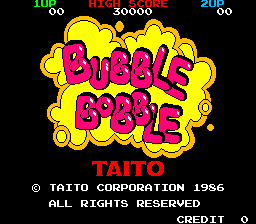From Loot Boxes to Bonus Rounds: Understanding the Psychology Behind Gaming Rewards
Gaming isn’t just entertainment; it’s crafted to keep you engaged. A significant factor in this allure is the reward systems—ranging from loot boxes to bonus rounds. These elements are designed to tap into player psychology, heightening excitement, anticipation, and overall engagement.
If you’ve ever experienced a thrill from unlocking a rare item or winning a bonus round, you’re not alone. This blog delves into the psychology behind gaming rewards, exploring how they captivate players, and examining the influence of gamified casino bonuses drawn from video games.
Exploring Loot Boxes
Loot boxes are engineered to create excitement and anticipation.
Loot boxes are ubiquitous in contemporary gaming. Whether you’re a casual gamer or a dedicated one, chances are you’ve opened a loot box, hoping for that elusive item. But how do they function psychologically?
Fundamentally, loot boxes utilize variable ratio reinforcement. This unpredictable reward system mirrors the mechanics that make slot machines so engaging. The uncertainty of a big win keeps players coming back, enhanced by flashy animations, thrilling sound effects, and countdown timers.
The ultimate aim? To keep players feeling rewarded while encouraging them to invest additional time and money into the game.
Daily Rewards and Streak Mechanics
Daily rewards promote sustained engagement through habit formation.
Have you ever logged in to collect a daily reward even if you hadn’t planned on playing? That’s the power of streak mechanics. Many games offer escalating incentives for daily logins, from coins on day one to legendary items on day thirty—the stakes keep rising.
This taps into the psychology of commitment and consistency. Once you start a streak, you’re driven to maintain it; missing a day feels like a loss, even in a digital context. Rewards are designed to encourage regular interaction, turning engagement into a habit. It’s not just about rewards; it’s about establishing a routine.
Achievements, Progress Bars, and Milestones
Progress indicators give players a sense of accomplishment and control.
Players love achievements and progress bars. Have you ever felt a wave of relief or triumph when you achieve a milestone in a game? This reflects the psychology of goal-setting theory.
Games incorporate micro-goals—like completing quests or leveling up—that strike the right balance of challenge and reward. Progress bars serve as visual motivators, gently encouraging you to fill them up. Step by step, these rewards replicate the satisfaction of checking off tasks on a to-do list.
Casino Bonuses and Gaming Rewards
Casino bonuses draw extensively from gaming to create excitement.
Reward mechanisms are not limited to video games; they thrive in online casinos as well. Imagine signing up for an online casino with a promise of free spins—doesn’t that echo daily rewards or loot boxes in gaming?
Online casinos utilize surprise bonuses, jackpot rounds, and leaderboards to gamify user interactions, much like loot boxes. These casino bonuses also depend on unpredictability. The thrill of winning a surprise bonus parallels the excitement of scoring a rare loot box item.
A key similarity lies in the psychology of instant gratification. Just as equipping a rare item in a game is rewarding, receiving a bonus that instantly boosts your balance creates a similar rush. To explore more, check this list of top bonuses at online casinos for the best deals available.
The Neuroscience of Rewards
Our brains crave dopamine surges from rewards.
Ever wondered why rewards are so pleasurable? It boils down to dopamine, a neurotransmitter involved in regulating pleasure and reward in the brain. When you unlock a rare item in an RPG or secure a jackpot, your brain releases dopamine, leading to feelings of joy and satisfaction.
Game designers leverage this knowledge by distributing rewards strategically to maintain a flow of dopamine. However, balance is crucial. Rewards must feel achievable yet unpredictable to keep players engaged without overwhelming them.
Are Rewards Always Positive?
While rewards enhance gaming, they can also border on manipulation.
While satisfying, rewards raise ethical concerns. Loot boxes have come under scrutiny for their resemblance to gambling, particularly when players spend real money to acquire them. The addictive nature of variable ratio reinforcement can lead to unscheduled spending, a concern continually addressed by developers.
However, when implemented thoughtfully, rewards can enrich player experience without exploiting psychology. For instance, achievements focused on skill development or non-monetized gameplay rewards invite players to delve deeper into the game without feeling pressure to spend.
Future of Gaming Rewards
Future reward systems will be driven by personalization.
As gaming technology evolves, rewards will be increasingly customized for individual players. AI and machine learning are paving the way for games to adapt to unique play styles, offering rewards that feel genuinely meaningful.
Similarly, casinos are moving towards personalized promotions, offering bonuses tailored to user activity and preferences. Whether it’s an exclusive loot box or a unique casino bonus, the focus will be on creating significant experiences for players. Expect to see fewer generic incentives and more customized experiences in the years to come.
Related
Original article by www.oldschoolgamermagazine.com


